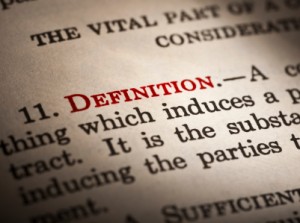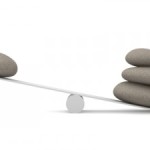 I’ll be straight with you – I know you understand what depression is.
I’ll be straight with you – I know you understand what depression is.
Psychiatrically speaking, depression is Rolling Stones famous; you’ve all heard of it.
However, even though depression is not a mystery to you it’s still important to define it.
I want to start by being clear about what depression is so everyone else is to.
As I mentioned in a previous article I’ll be doing a series on depression and this article is the first in that series.
Now… is there a difference between unhappiness and depression?
Some would argue that unhappiness and depression are the same thing. Not me. Depression is more than unhappiness. It does include feelings of unhappiness to varying degrees, but true depression comes with additional symptoms.
Here is a short list of depression symptoms:
1. Depressed mood
2. Disinterest in things you like
3. Low energy
4. Decreased appetite
5. Irritability
6. Trouble concentrating
7. Insomnia or Hypersomnia
8. Feelings of worthlessness
9. Thoughts of suicide
10. Chronic boredom
As you can see, depression is more than being unhappy or blue. Depression is specific and can be difficult to treat. Like most mental ailments depression also comes in varying degrees that range from ‘mild’ to ‘major’ and everywhere in between.
What causes depression?
Depression is caused by a complex mix of biological and environmental factors; what some people like to call nature versus nurture. There are many theories on the matter but in a nutshell it’s thought that some people have a natural (genetic) predisposition toward the condition.
While others are thought to be depressed because of negative life events – like death – or because of more daily struggles related to things like poverty, obesity, sexual orientation or anything under the stars that might cause you to feel long-term stress.
Fact is, some people struggle with both issues.
Some theorists have even speculated that depression is a result of personality traits such as a high dependence on others and or an excessive need to please others. In a way, it’s easy to see why these types of folks could feel pressured and depressed over the long-term.
If you were always jumping through hoops like that what would it do to your self-confidence or even to your perspective on what constitutes a stressful situation? Could skew things toward the negative, for sure.
An alternative view of what causes depression stems from the Buddhist belief that depression is in fact caused by selfishness and egoism.
However you slice this cake there is no easy answer. It’s complicated.
Perhaps you’re depressed because of a break up or, like a friend of mine once said, “it could be chemical.” Whatever the cause, if depression is weighing you down, you should consider addressing it.
The next installment in this series will cover the different degrees of depression.
Knowing where you’re at in your depression is important because it will dictate what kinds of treatments you should pursue. You need to know if you can help yourself or if you need to call on professional help in this regard.
Many of us both underestimate and overestimate what we can deal with. This next article should clear things up for you.
And yes, your comments are highly valued!
References
Journal of Abnormal Psychology; Nov93, Vol. 102 Issue 4, p584, 8p, 3 Charts
Mental Health Practice; Jun2004, Vol. 7 Issue 9, p33-37, 5p





Look forward to reading the next installments, Paul! Awesome stuff. This isn’t my primary issue, but I’ve had it pop up and it’s something that all anxiety sufferers should be ready for. By that I don’t mean afraid or expecting it, but just to have an understanding of it so if it does come up, you’re not so caught off guard by it. I have to be honest in that I never thought it would hit me. I’m an anxiety sufferer but have always been extremely upbeat. So, when I got some blasts of what felt to be chemical depression, I had a hard time coping. I do better now, thanks to doing some research and learning coping skills. (Of course, it can still be very difficult.) Dr. Weekes calls it a chemical disturbance and a state of emotional depletion. I think with regards to how most of us anxiety sufferers may come across it, she’s right. But, even if it’s chemical, we’ve still got the ability to influence it at each stage, imo.
Thanks again for all of this, Paul. Look forward to reading more.
I’m glad you’re focusing more on this aspect of anxiety; if there’s one thing that my anxiety has caused it is certainly feelings of loneliness, emptiness, and overall I just feel kind of worthless. I think that anxiety-induced depression is, however, one of the easiest things to fix because it has a very real cause: the anxiety.
Nevertheless I can’t wait for more on this. =) I’ve been reading your articles and everything is absolutely wonderful here.
@Bryan – Thanks Bryan. Love how you always hold out hope. That is the key to all of this. Hope based on facts and pure determination to improve the situation.
@William – Hey William you nailed it; deal with your anxiety and your other related issues will generally lift. I also think expanding the topic of discussion toward other issues also provides context and a better view of how to move forward. Glad you’ve enjoyed the articles.
I love what I do and I’m glad to know others appreciate the work. =)
Thanks Paul, yea… I know we all have a baseline we can return to. Even if that baseline includes some occasional anxiety and depression, I believe we can all get back to a place of general happiness. You are living proof, and there are tons of other examples out there.
To me, the most difficult yet important part of dealing with depression/anxiety is trying to witness it instead of identifying with it. We’re so quick to say “THIS IS ME!” when anxiety or depression descend. Yet, it’s not us… it’s a temporary, fleeting state. But, it can feel so permanent and so part of us. Learning to truly separate those is what I’m working the hardest on, currently.
Anyway, thanks again Paul. Love reading and learning about all of this.